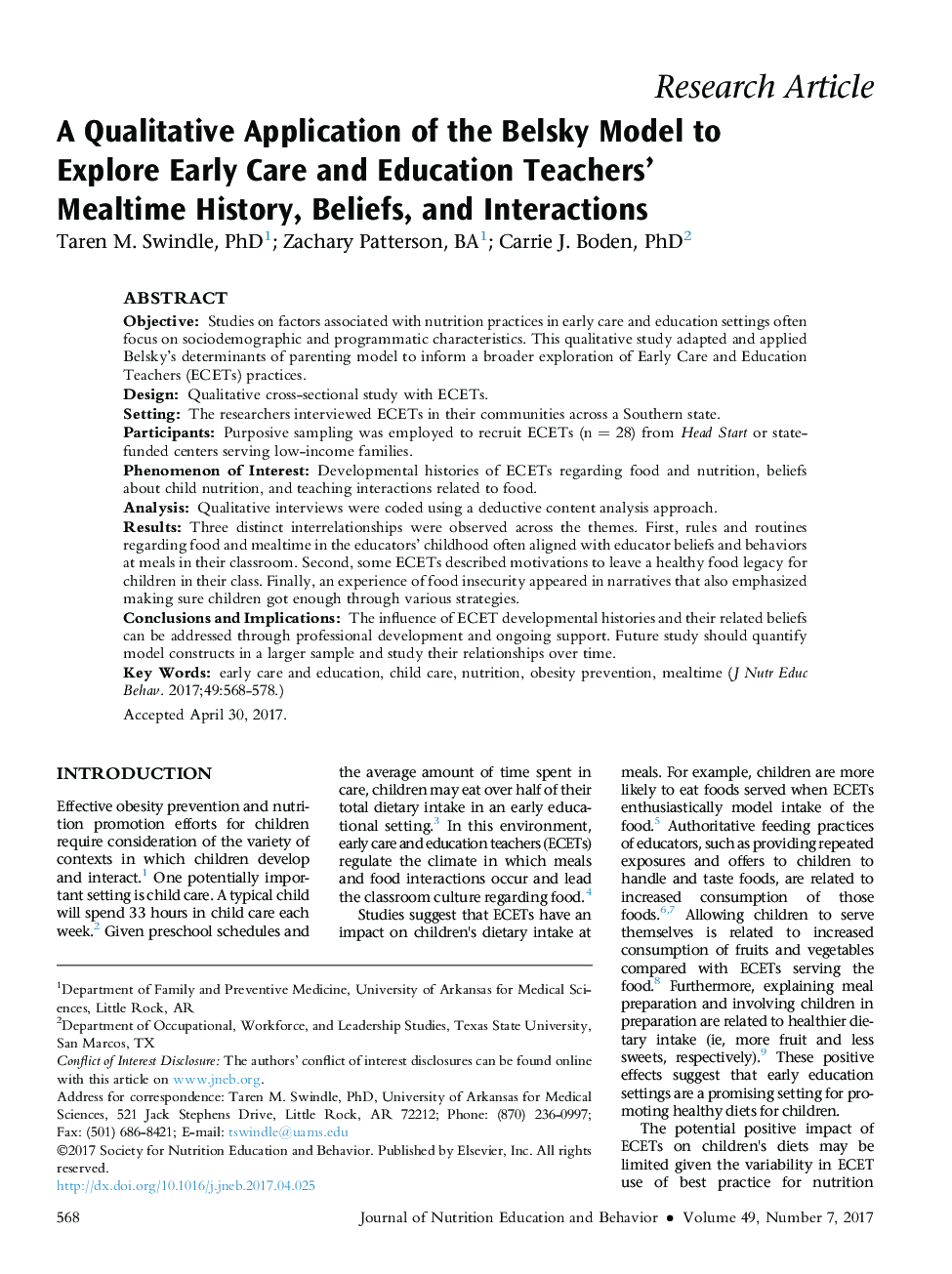| Article ID | Journal | Published Year | Pages | File Type |
|---|---|---|---|---|
| 4939523 | Journal of Nutrition Education and Behavior | 2017 | 12 Pages |
ObjectiveStudies on factors associated with nutrition practices in early care and education settings often focus on sociodemographic and programmatic characteristics. This qualitative study adapted and applied Belsky's determinants of parenting model to inform a broader exploration of Early Care and Education Teachers (ECETs) practices.DesignQualitative cross-sectional study with ECETs.SettingThe researchers interviewed ECETs in their communities across a Southern state.ParticipantsPurposive sampling was employed to recruit ECETs (n = 28) from Head Start or state-funded centers serving low-income families.Phenomenon of InterestDevelopmental histories of ECETs regarding food and nutrition, beliefs about child nutrition, and teaching interactions related to food.AnalysisQualitative interviews were coded using a deductive content analysis approach.ResultsThree distinct interrelationships were observed across the themes. First, rules and routines regarding food and mealtime in the educators' childhood often aligned with educator beliefs and behaviors at meals in their classroom. Second, some ECETs described motivations to leave a healthy food legacy for children in their class. Finally, an experience of food insecurity appeared in narratives that also emphasized making sure children got enough through various strategies.Conclusions and ImplicationsThe influence of ECET developmental histories and their related beliefs can be addressed through professional development and ongoing support. Future study should quantify model constructs in a larger sample and study their relationships over time.
